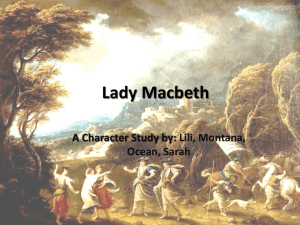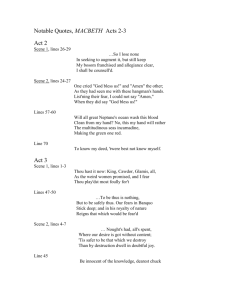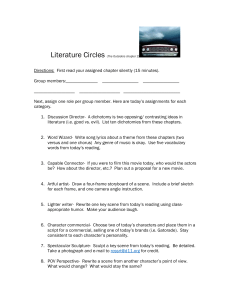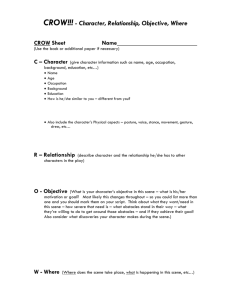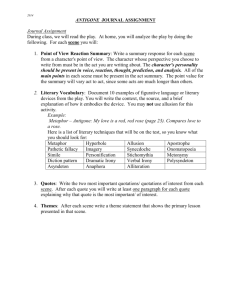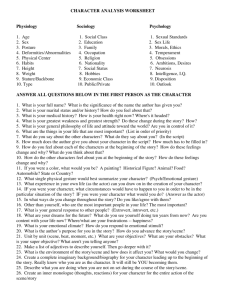Othello Dialectical Journal Assignment
advertisement
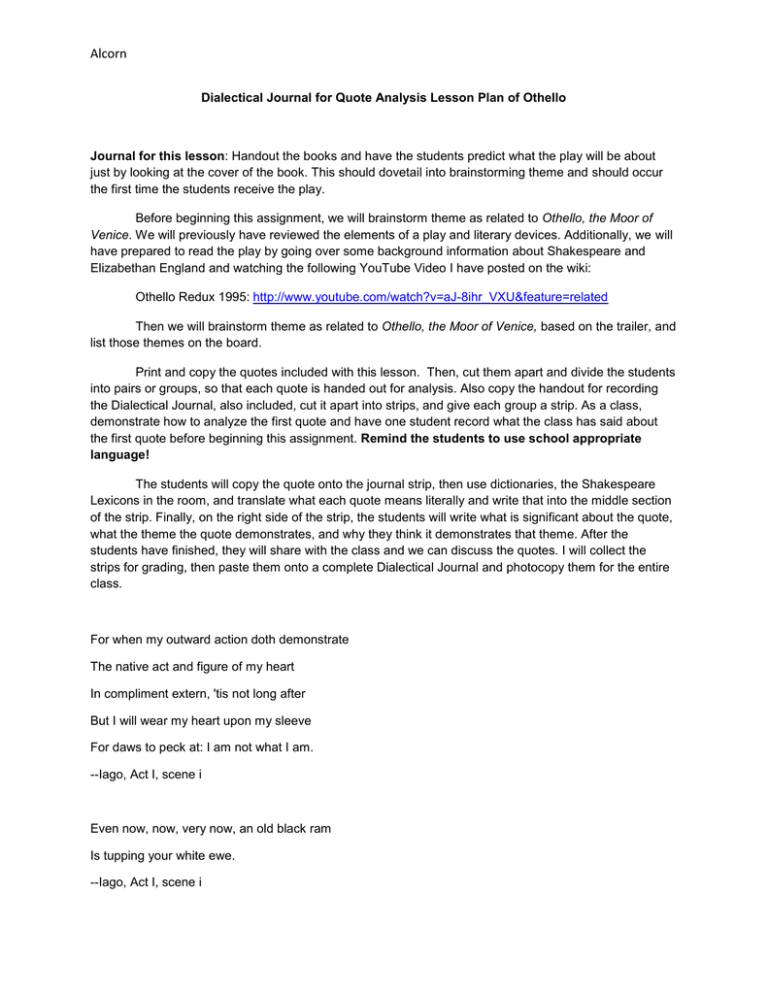
Alcorn Dialectical Journal for Quote Analysis Lesson Plan of Othello Journal for this lesson: Handout the books and have the students predict what the play will be about just by looking at the cover of the book. This should dovetail into brainstorming theme and should occur the first time the students receive the play. Before beginning this assignment, we will brainstorm theme as related to Othello, the Moor of Venice. We will previously have reviewed the elements of a play and literary devices. Additionally, we will have prepared to read the play by going over some background information about Shakespeare and Elizabethan England and watching the following YouTube Video I have posted on the wiki: Othello Redux 1995: http://www.youtube.com/watch?v=aJ-8ihr_VXU&feature=related Then we will brainstorm theme as related to Othello, the Moor of Venice, based on the trailer, and list those themes on the board. Print and copy the quotes included with this lesson. Then, cut them apart and divide the students into pairs or groups, so that each quote is handed out for analysis. Also copy the handout for recording the Dialectical Journal, also included, cut it apart into strips, and give each group a strip. As a class, demonstrate how to analyze the first quote and have one student record what the class has said about the first quote before beginning this assignment. Remind the students to use school appropriate language! The students will copy the quote onto the journal strip, then use dictionaries, the Shakespeare Lexicons in the room, and translate what each quote means literally and write that into the middle section of the strip. Finally, on the right side of the strip, the students will write what is significant about the quote, what the theme the quote demonstrates, and why they think it demonstrates that theme. After the students have finished, they will share with the class and we can discuss the quotes. I will collect the strips for grading, then paste them onto a complete Dialectical Journal and photocopy them for the entire class. For when my outward action doth demonstrate The native act and figure of my heart In compliment extern, 'tis not long after But I will wear my heart upon my sleeve For daws to peck at: I am not what I am. --Iago, Act I, scene i Even now, now, very now, an old black ram Is tupping your white ewe. --Iago, Act I, scene i Alcorn Your daughter and the Moor are now making the beast with two backs. --Iago, Act I, scene i Though in the trade of war I have slain men, Yet do I hold it very stuff o' the conscience To do no contrived murder: I lack iniquity Sometimes to do me service. --Iago, Act I, scene ii Thus do I ever make my fool my purse. --Iago, Act I, scene iii The robbed that smiles, steals something from the thief. --Duke, Act I, scene iii But words are words; I never yet did hear That the bruised heart was pierced through the ear. --Brabantio, Act I, scene iii Knavery's plain face is never seen till us'd. --Iago, Act II, scene i O! I have lost my reputation! I have lost the immortal part of myself, and what remains is bestial. --Cassio, Act II, scene ii Alcorn O thou invisible spirit of wine, if thou hast no name to be known by, let us call thee devil! --Cassio, Act II, scene ii Come, come, good wine is a good familiar creature, if it be well used; exclaim no more against it. --Iago, Act II, scene ii Reputation is an idle and most false imposition; oft got without merit and lost without deserving. --Iago, Act II, scene iii O! beware, my lord, of jealousy; It is the green-ey'd monster which doth mock The meat it feeds on. --Iago, Act III, scene iii Good name in man and woman, dear my lord, Is the immediate jewel of their souls: Who steals my purse steals trash; 'tis something, nothing; 'Twas mine, 'tis his, and has been slave to thousands; But he that filches from me my good name Robs me of that which not enriches him, And makes me poor indeed. --Iago, Act III, scene iii Alcorn Think'st thou I'd make a life of jealousy, To follow still the changes of the moon With fresh suspicions? No; to be once in doubt, Is once to be resolved. --Othello, Act III, scene iii If she be false, O! then heaven mocks itself. --Othello, Act III, scene iii O curse of marriage, That we can call these delicate creatures ours, And not their appetites! I had rather be a toad, And live upon the vapour of a dungeon, Than keep a corner in the thing I love For others' uses. --Othello, Act III, scene iii Villain, be sure thou prove my love a whore, Be sure of it; give me the ocular proof; Or, by the worth of mine eternal soul, Thou hadst been better have been born a dog Than answer my wak'd wrath. --Othello, Act III, scene iii Who would not make her husband a cuckold, to make him a monarch? --Emilia, Act IV, scene iii Alcorn Heaven me such uses send, Not to pick bad from bad, but by bad mend. --Desdemona, Act IV, scene iii O balmy breath, that dost almost persuade Justice to break her sword. One more, one more! Be thus when thou art dead, and I will kill thee, And love thee after. One more, and that's the last! So sweet was ne'er so fatal. I must weep, But they are cruel tears. This sorrow's heavenly; It strikes where it doth love. She wakes. --Othello, Act V, scene ii I pray you, in your letters, When you shall these unlucky deeds relate, Speak of me as I am; nothing extenuate, Nor set down aught in malice: then, must you speak Of one that lov'd not wisely but too well; Of one not easily jealous, but, being wrought, Perplex'd in the extreme; of one whose hand, Like the base Indian, threw a pearl away Richer than all his tribe; of one whose subdu'd eyes Albeit unused to the melting mood, Drop tears as fast as the Arabian trees Their med'cinable gum. Set you down this; And say besides, that in Aleppo once, Where a malignant and a turban'd Turk Beat a Venetian and traduc'd the state, I took by the throat the circumcised dog, And smote him thus. Alcorn --Othello, Act V, scene ii I kissed thee ere I killed thee, no way but this, Killing myself, to die upon a kiss. --Othello, Act V, scene ii

